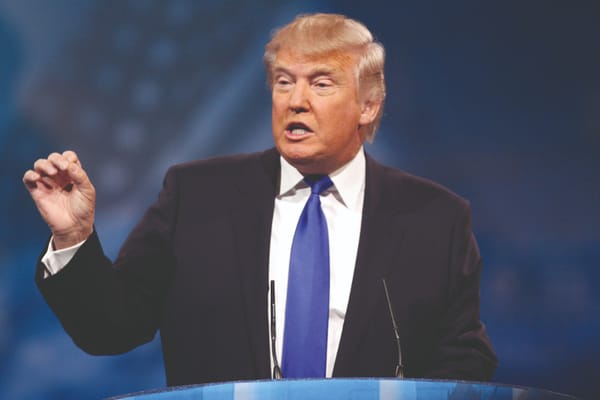Why we need to continue to fight for our fee refunds
Science Communication students explain in their open letter why students need to continue pressuring the College to providing refunds from strike action.

Dear Fellow Student,
Henry Bennie argued in Felix 1684 that, since we now all pay fees for our university courses, we should be afforded the same consumer protection rights as the general population in relation to the service we receive. These rights are set out by the UK government’s Competition and Markets Authority. University degrees fall under the terms of this legislation.
The strike last term has had a significant impact on the education of students in departments with high union membership. Whilst an agreement has been reached between UCU and UUK, the issue is still not resolved, and there is the potential for conflict to re-emerge next year when the independent panel reviewing the university pension reports. We feel the most important action that students can take to reduce the risk of further strike action in the future is to write to the President of Imperial College, Professor Alice Gast.
We have asked Felix to publish this open letter to urge you to write to Professor Gast, expressing your support for the staff members who went on strike, requesting a refund of fees, and urging senior management to take responsibility for the strike. Senior management need to stop pressurising departments to reinstate lectures and seminars without payment, and agree with students a fair reimbursement of fees from their lost education. Around 3,000 Imperial students completed the online petition requesting a refund of fees – please follow this up with a letter requesting the exact amount you think you are owed (a formula is included below).
Even if you have not been in touch with college management to request refund of fees it is still not too late to do so.
Please feel free to use any part of this letter to support your case.
We fully support our lecturers who went on strike to protect their pensions. They have chosen to work in the public sector and dedicate their working lives to education and research. The majority will be earning less than if they were in business, and should be rewarded for long service with a decent pension. Cutting the pensions of our excellent lecturers, many of whom can currently barely afford to live in London, by up to £10,000 per year will result in poor staff retention and low morale. This harms them, the university, and, ultimately, the students.
Imperial’s accounts for 2016/17 show there was £119m surplus in 2017, up by 37% between 2013 and 2017; over those same six years assets increased by 53% to £1.5 billion, and income from students increased by 42%. Imperial is clearly able to increase its contributions to correct the pensions fund deficit – the size of which is in dispute and should be worked through in an open, fair and logical manner.
Whilst our lecturers have done all they can to mitigate the impact of the strike – and we hope that those of you affected will also have had good communication and support from your lecturers – we have found the strike has had a dramatic impact on our education. It has meant a serious loss of momentum in our studies and considerably worsened our learning experience. Seminars have been cancelled and outside speakers curtailed, both of which are a central part of our degree course. There has also been less staff contact for informal support or by email.
We decided to come to Imperial both for the excellent master’s degrees it offered in Science Communication/Science Media Production, and because of the high calibre of staff and fellow students. We specifically did not sign up to take a correspondence course with little or no interaction, but this is effectively what has now happened for many of us due to the strike. It is not solely the contact hours that have been lost: the strike has meant there are fewer fellow students around in the department and the sense of excitement and momentum that a great masters course can generate has gone.
The universities are deducting pay from union members who strike. Since they are doing this and we are paying fees for our education, we are not happy for the university to profit from this strike whilst our education suffers. We have lost a significant part of our education that cannot ever be retrieved and believe that we should now be due compensation. In our view this is the responsibility of the university as the legal provider, and not our department.
There are several ways to calculate what refund you might be due. We have applied the following logic.
A full-time student paying £9400 fees for 30 weeks of 5 days per week (150 days of education) is paying £62.67 per day. The strike has lasted 14 days and therefore if all their lecturers were union members they should receive £877 refund (14x62.67). Part-time students should receive a refund of half this amount, which is £438; and students paying overseas fees need to calculate the daily rate and multiply by 14 days. For example someone paying fees of £20,800 should receive £1941 (14x138.7).
We advise you adjust this amount depending on what proportion of your courses were affected by lecturers who were striking.
We have requested that our accounts are credited with the appropriate amount if we are continuing to study at Imperial next year or have requested a cash refund if we are in our final year. You might also want to copy in:
Provost: Professor James Stirling Vice-Provost Education: Professor Simone Buitendijk Credit Control Supervisor-Student Services at Imperial College London: Nick C. Rogers
We urge Professor Gast to respond constructively to the letters we have sent and not to dismiss the concerns of the student for whom she is responsible, and who come to Imperial to receive not just a degree certificate but an excellent education.
Signed by:
- Hilary Guite
- Catherine Webb
- Rachael Smith
- Anthea Lacchia
- Shivani Dave
- Joy Aston
- Lina Kabbadj
- Bridie Kennerley
- Olivia Mulvahil
- Meesha Patel
- Poppy-Jayne Morgan
- Chris Richardson
- Henry Bennie
- Daan Fuldner
- Erika Gajda
- Rachel Kahn
- Sarah Leach
- Poppy Lambert
- Luke Cridland
- Mariam Sabet
- Izzy Sturt
- Jonathan Neasham








